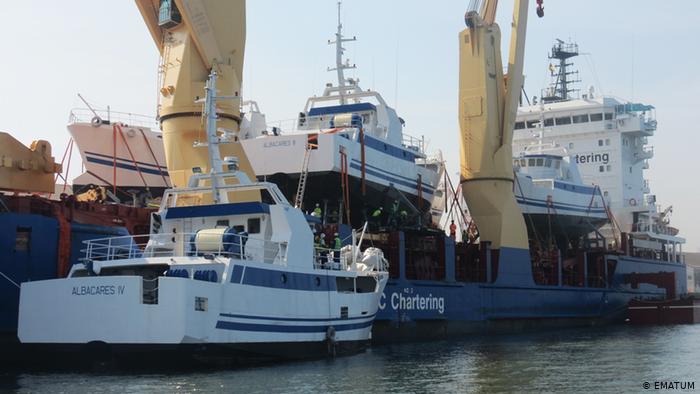Mozambique: Remittance inflows see six-fold rise in seven years
Mozambique: Ematum debt restructuring “postpones gas gains”

File photo: DW
Creditors have agreed to the restructuring of the Ematum debt. But a CIP researcher says there are other priorities in the so called ‘hidden debts’ case, such as “protecting the Mozambican people” and “recovering misappropriated assets.”
Mozambicans may have to pay a heavy bill for Ematum’s debt. This is the conclusion that analysts interviewed by DW Africa come to when looking at the company’s debt restructuring plan.
Inocência Mapisse, a researcher at the Centre for Public Integrity (CIP), says the government “is postponing the benefits for the Mozambican people from gas exploitation, in addition to tightening the state budget.”
The restructuring plan announced by the Mozambican government this week was approved last week by holders of 99.5% of the company’s debt.

Creditors give Mozambique an additional eight years – to 2031 – to repay the Ematum debt. At the same time, the debt increases from US$726 million to US$900 million. The interest rate will be 5% initially, rising to 9% from 2024, when Mozambique is expected to already be producing natural gas off its northern coast.
According to Inocência Mapisse, this is no coincidence.
“An idea has been sold that this proposal for debt restructuring does not involve using gas revenues to pay debts. But, in a deep analysis, it is clear that there is a strong relationship between this debt restructuring proposal and gas revenues,” she said in an interview with DW Africa.
A matter of priorities
And the money could be better invested in other areas such as building schools, hospitals or improving infrastructure, economist Elcidio Bachita says.
Or it could be used “to create small investments which could guarantee some job opportunities for most of the young Mozambican population, who leave higher education and technical and vocational institutions and cannot find a space in the labour market,” he adds.
On the other hand, he warns, Ematum debt repayment could hurt the economy and have a direct impact on Mozambicans’ pockets, “because we are going to have a large outflow of foreign currency capital, and this will devalue the currency.”
“The devaluation of the national currency against the US dollar, the Euro and the South African rand will create inflationary pressures within the economy,” he warns.
Credibility and asset recovery
For the government in Maputo, the Ematum debt restructuring is an attempt to restore Mozambique’s credibility with creditors.
But Bachita says this will only work with some private financial institutions. Bachita suggests that Mozambique would gain more credibility if the government refused to restructure, because, in June, the Constitutional Council annulled the debt and state guarantees issued in 2013 in favour of Ematum.
“In the eyes of the International Monetary Fund and the World Bank, our country’s credibility remains diminshed. And internally, too, Frelimo [the ruling Liberation Front of Mozambique] may be crucified by this situation – because all Mozambicans know about this hidden debts situation.”
For CIP’s Inocência Mapisse, the priority should not be restructure the debt, but recovering the money.
“Restructuring should not be a way to make the debt legal,” Mapisse says. “Given the arguments used by the Ministry of Economy and Finance, it was expected that, at the very least, there would be parallel actions showing that, yes, the big goal right now is to regain confidence in the international financial market, and in addition, opening the market for the country. But these would be followed by ways of protecting the Mozambican people and recovering the assets that were diverted in this process.”













Leave a Reply
Be the First to Comment!
You must be logged in to post a comment.
You must be logged in to post a comment.